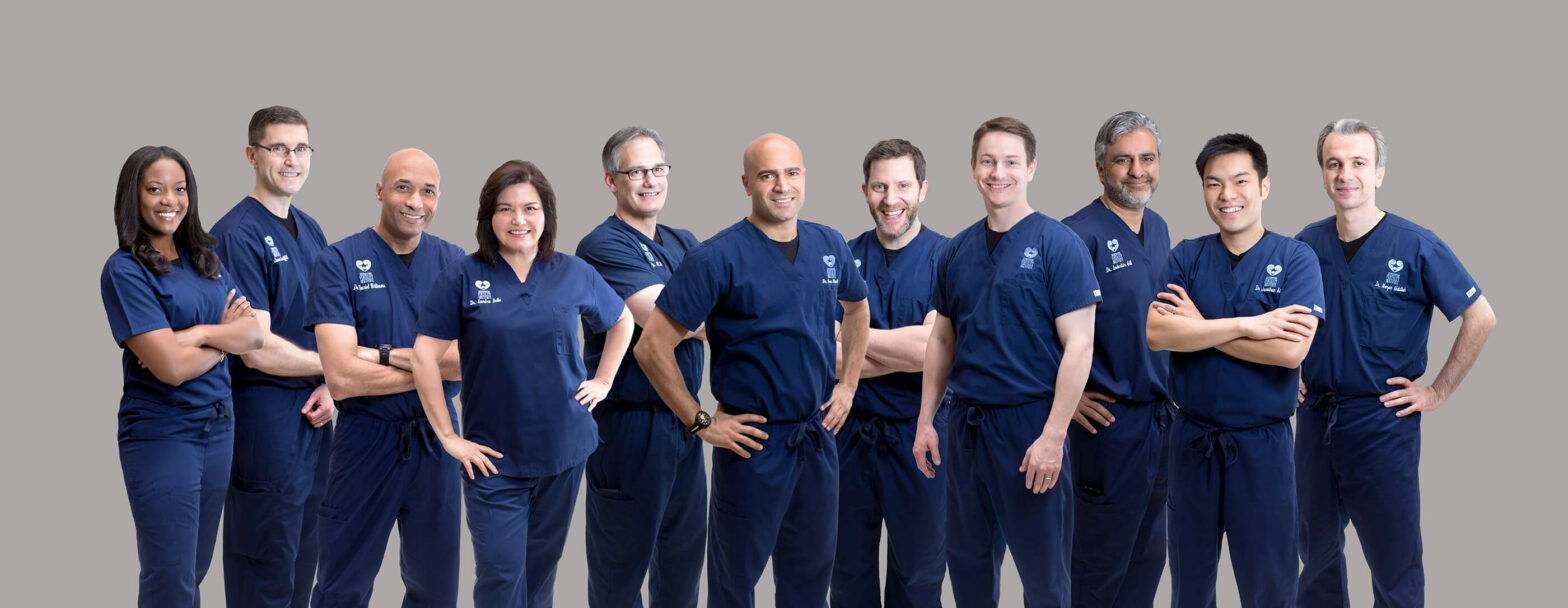The Bureau of Labor Statistics (BLS) forecasts that between 2021 and 2031, overall healthcare employment will grow 13% (about 2 million positions), much faster than the average for all occupations. As many individuals and couples are considering assisted reproductive technology (ART) to grow their families, this represents an excellent job field. With such high demand, you can feel confident that you’re entering a rewarding industry, ensuring job and financial security, as well as many other benefits. Here are some reproductive health positions to consider.
Reproductive Endocrinologists
Reproductive endocrinologists, also called fertility specialists, are physicians in obstetrics and gynecology specializing in the endocrine system, which regulates hormonal functioning throughout the body and plays a significant role in fertility. Reproductive endocrinologists intending to focus on female fertility complete a residency in obstetrics and gynecology, followed by a fellowship in reproductive endocrinology. Doctors intending to specialize in male fertility typically complete a residency in urology, followed by a fellowship in andrology. In addition, doctors must complete national board certification and their specific state medical licensure.
Embryologists
Throughout the in vitro fertilization (IVF) process, dedicated embryologists perform all of the complex laboratory procedures involved. These may include:
- Oocyte identification, evaluation, assessment, and viability
- Specialized treatments, like intracytoplasmic sperm injection (ICSI), in which healthy sperm is injected into egg cells to initiate fertilization.
- Preparation and transfer of embryos
- Andrology services, including semen analysis, sperm washing, and sperm cryopreservation
- Participation in research, data collection, and laboratory quality control
Embryologists must have a bachelor’s degree in laboratory science, although a master’s degree is preferred. Candidates also require 3-4 years of prior experience in an IVF laboratory.
Genetics Counselors
Before starting fertility treatment, many aspiring parents undergo genetic counseling. Using family histories, genetic counselors help patients interpret and understand their test results. Job growth for this role is expected to grow much faster than average, due to the emphasis on personalized medicine and ongoing technological innovations. Genetic counselors require a bachelor’s degree, and a Master of Science in genetic counseling, including clinical training experience and a research project. Students must then pass a certification exam.
Nurses
In any fertility clinic, there’s a high demand for nurses. The full scope of what they do in a fertility clinic setting is enormous. Registered nurses (RNs) have a state-issued license to practice nursing, and they perform such responsibilities as:
- Assisting physicians with exams, procedures, and health histories
- Providing patient health counseling and education
- Administering medications and other interventions
- Coordinating care with multiple healthcare professionals
- Specific to fertility clinics, completing such tasks as intrauterine insemination (IUI) procedures
RNs must have completed at least an associate’s degree, although a bachelor’s degree is often required.
Various Administrative Positions
From the moment patients step into a fertility clinic, administrative professionals such as coders, medical assistants, billing specialists, and many others help to create a seamless experience by facilitating all the non-medical details involved in fertility care. Administrative professionals’ essential responsibilities include patient information and scheduling, financial matters, and filling prescriptions. These roles may require advanced knowledge and experience in various programs, depending on the specific role.
Third-Party Reproduction Coordinators
As a Third Party Reproduction Coordinator, you will play a vital role in facilitating and coordinating the process of third-party reproductive services, including egg donation, sperm donation, and gestational surrogacy. You will work closely with aspiring parents, egg donors, surrogates, and various healthcare professionals to ensure a seamless journey toward successful family-building.
Explore a Healthcare Career in Fertility Care
Embarking on a career in the fertility care industry is an exciting and rewarding journey. The world of fertility care is a field that not only promises fulfilling work but also opens doors to lucrative opportunities. With the ever-increasing demand for fertility treatments and services, this thriving industry is on an upward trend, offering a chance to make a significant impact on the lives of others while enjoying a promising and stable career path.
The Prelude Network®, a premium network of North American fertility clinics, is always looking for qualified professionals. We pride ourselves on providing an excellent, rewarding environment for our employees. Find your next move and explore our current fertility care career opportunities.
